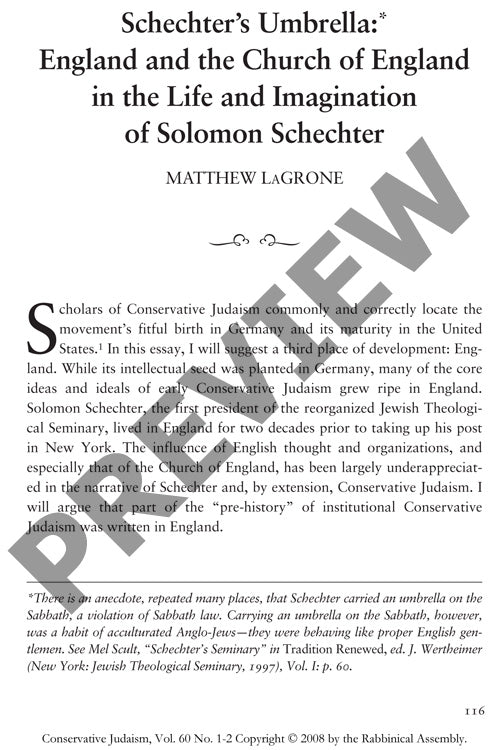Schechters Umbrella England and the Chu
Couldn't load pickup availability
Solomon Schechter's vision for Conservative Judaism, long attributed primarily to German and American influences, was profoundly shaped by his two-decade immersion in Anglican thought and culture during his time in England (1882-1902). While scholars have overlooked England's role in Conservative Judaism's development, Schechter's writings reveal how deeply he absorbed and adapted Anglican theological frameworks, particularly their model of religious centrism. His frequent deployment of Anglican terminology—"High Synagogue," "Low Synagogue," and "United Synagogue"—signals a deeper intellectual debt to Victorian Anglican theologians like Frederick Denison Maurice and John Henry Newman. Through textual analysis of Schechter's works, this research demonstrates how he appropriated two fundamental Anglican concepts: comprehensiveness (integrating positive elements from opposing traditions) and via media (finding a middle path between extremes). These principles became foundational to his positioning of Conservative Judaism between Reform and Orthodox Judaism, mirroring Anglicanism's stance between Roman Catholicism and Protestantism. Although England did not generate native Conservative movement leaders or institutions, it provided crucial identity formation through Schechter's intellectual engagement with Anglican models of religious centrism and unity, establishing patterns that influenced Conservative Judaism's subsequent development in America.

More Information
-
Physical Description
-
Publication Information
Published 2007-2008
ISBN
-
Publication Credits
Matthew LaGrone

